CREATE Visits Karupannya: an example of socio-economic and environmental sustainability through circular economy

The CREATE Team has visited Karupannya. Ltd, in Rangpur district on 7th August, 2023.
Karupannya primarily uses fibers from traditional plants, such as banana plant and water hyacinth (Pontederia crassipes), and jute. However, it also reuses textile waste in making rugs and handicrafts, and supplies to global brands such as IKEA, H&M, Jysk, and others.
Karupannya is a good example that makes high value products from textile waste in global value chains contributing to economic and environmental sustainability; because textile reuse does not emit CO2 and consume water in the manufacturing process. In addition, Karupannya employs the vulnerable and ethnic female workers as well as housewives in the rural areas in Rangpur, through sub-contracting handicraft-making, which significantly contributes to social sustainability. Employment of socio-economically backward group of women empowers female workers in the society and contributes to household income. This is a good example of social sustainability through circular economy.
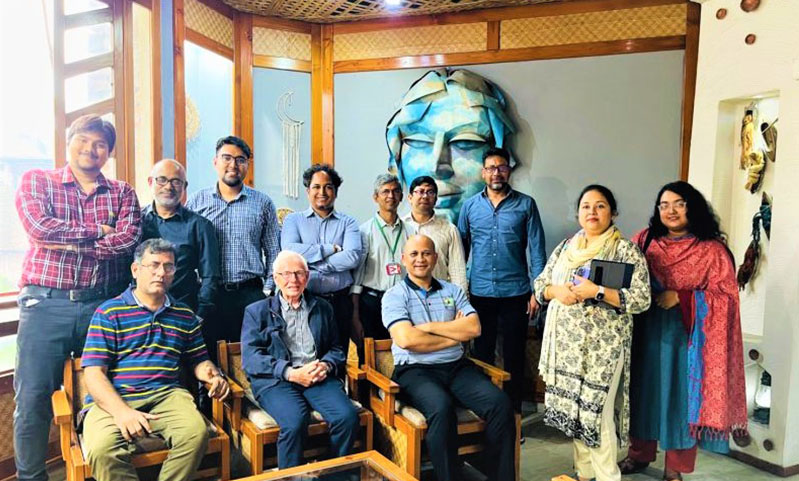
The visit was led by the CREATE project leader, Dr. Mohammad B. Rana, Associate Professor at Aalborg University Business School (AAUBS), Denmark, together with Emeritus Professor Olav Jull Sørensen at AAUBS and a senior Research Fellow at Access2Innovation, DK, Prof. Dr. Shafiul Alam (AUST), Prof. Dr. Imranul Hoque (AUST and JnU), Prof. Dr. Melita Mehjabeen (IBA, DU), Mr. Nahidul Haque, entrepreneur of a Package Recycling Company, Mr. Mumit Hasan, Director, Business & Operation (Reverse Resources) , Mr. Abul Kalam Azad, Research Associate at CREATE, Sarah Mirza, Research Assistant at CREATE, PhD Students at Aalborg University Mr. Hasan Imam.
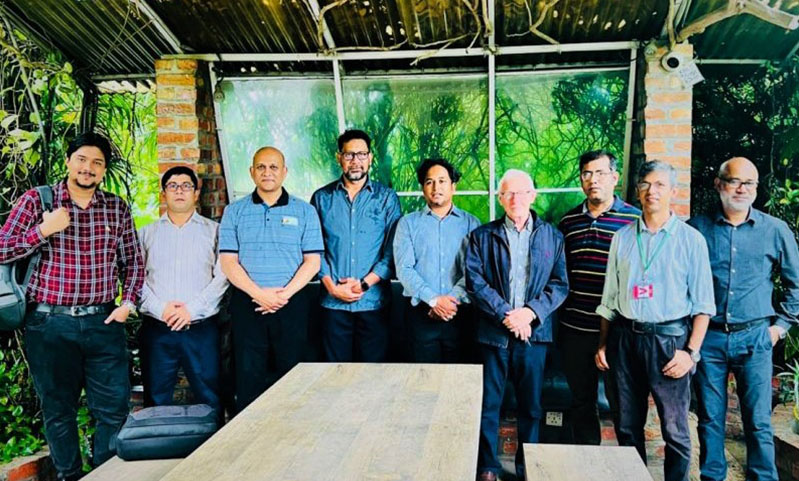
The aim of Karupannya is to create job opportunities and promote women’s empowerment in the Rangpur region. This involves crafting eco-friendly handmade rugs while also making positive contributions to the environment. Their aspiration is to ensure top-notch quality, achieve cost-efficiency, and enhance lives while being mindful of social and environmental considerations. The measure of their accomplishment is reflected in the improved living standards of their workers in the adjacent areas.
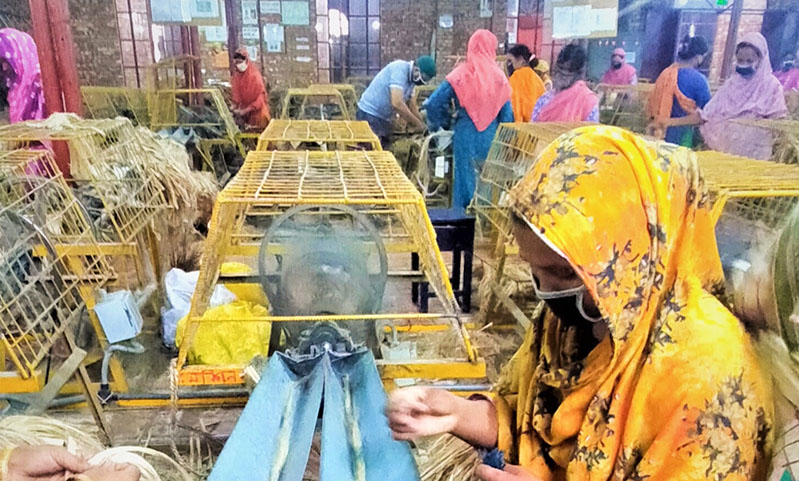
Through the innovative process of repurposing and recycling textile waste to create handicrafts for home decoration, this company utilizes both the unconventional plant materials that are considered waste in the society and textile waste. Their approach contributes significantly to address climate change and ensure economic and social sustainability. The made Products like Rugs, Doormats, Bathmats, Placemats, Cushion Covers, Storage Basket, Coasters, Wall Hangings are made mainly from jute and Cotton from textile waste.
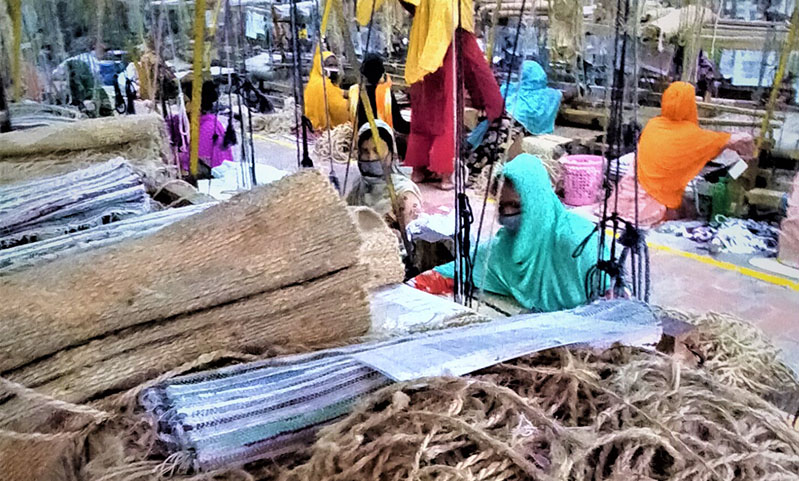
They collect textile wastages mostly from various sources and make products for brands. They export natural Colored Products which is also economic and environment friendly. They also reuse their own waste to make sure that they have zero waste in production. They are planning to make Seedling Trays from recycled Polythene and plastic bottles in future.
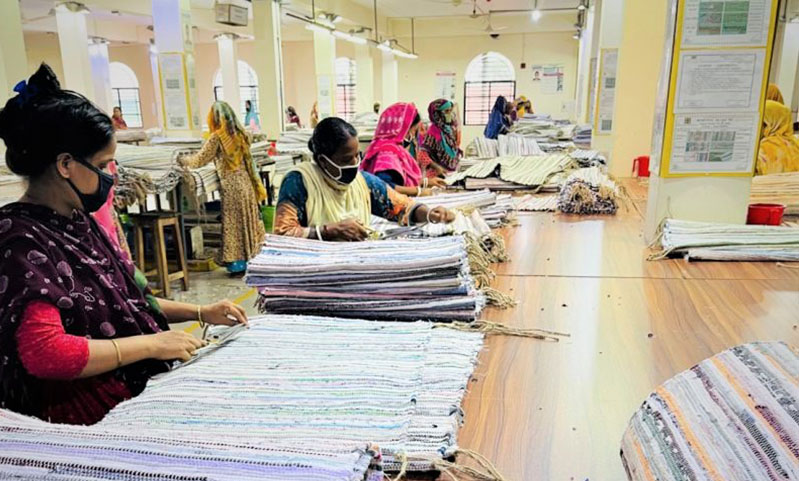
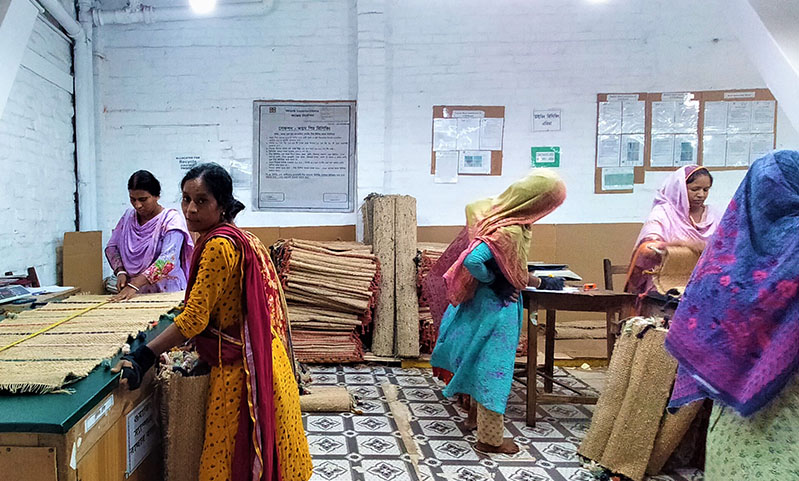
The visit was truly inspiring as we gained insights on innovative methods and processes contributing to circular economy and sustainability within the context of the apparel global value chains.